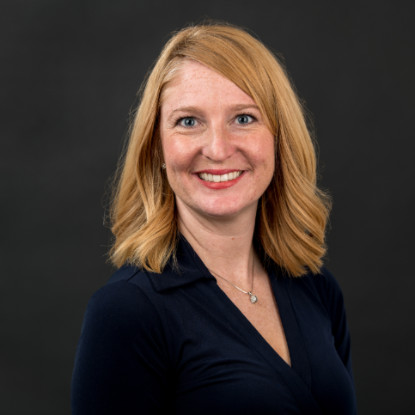Empowering Minoritized Women in STEM: The WiSEN Initiative

In a bid to broaden participation of women in STEM (Science, Technology, Engineering, Mathematics) fields, the WiSEN (Women in STEM Education Network) initiative emerges as a beacon of hope. WiSEN and Gonzaga's Melinda Howard, Ph.D., envisions a collaborative environment centered on co-mentoring and critical dialogue, aiming to foster systemic change in STEM within higher education institutions. This endeavor has been buoyed by a critical National Science Foundation grant of nearly $600,000, with a portion allocated to Gonzaga's specific efforts with minoritized female STEM students.
WiSEN's framework encompasses critical conversations on leveraging cultural wealth and intersectional identities, understanding institutional power dynamics, networking for systemic change, and fostering future leaders through co-mentoring. These conversations delve into the validation of students' cultural wealth and identities, paving the way for transformative experiences within STEM education. Gonzaga's Melinda Howard is keen to align the project and its origin as a professional group with Gonzaga's mission, particularly our commitment to the dignity of the whole person, stating, "It's not just mentoring within a professional sense, but also mentoring in recognition of our full humanity."
Gonzaga plays a pivotal role in the WiSEN initiative, managing a portion of the awarded funds and actively involving STEM students across academic classes and disciplines. The first cohort of student fellows aims to identify the unique experiences and needs of women STEM students at each institution while empowering the next generation of STEM leaders and advocates. GU's first round of recruitment yielded 32 applicants and produced a cohort of 8 fellows. Additionally, across institutions, cohort meetings are designed with their user needs in mind, "With each of these institutions, we have local meetings that are unique to the culture and dynamics of each institution. So, what Gonzaga has in terms of its experiences and needs may differ from the institutional needs and demographics of, say, Washington State University – Tri-Cities," Howard explains.
The WiSEN initiative is a testament to the transformative power of collaborative mentorship and critical dialogue in empowering minoritized women in STEM. With a commitment to systemic change and inclusivity backed by funding, WiSEN paves the way for a more diverse, equitable, and thriving STEM community.
Addressing Existing Gaps
WiSEN recognizes the power of mentoring in STEM recruitment and retention, however, rather than utilizing traditional formal mentoring approaches, WiSEN engages in a co-mentoring model. By incorporating a shared leadership model, WiSEN seeks to build a supportive network that centers on the multifaceted experiences of minoritized women in STEM across four institutions, including Rochester Institute of Technology, Washington State University Tri-Cities, and the University of Montana. The initiative aims to become a Networked Improvement Community (NIC), facilitating collaboration among researchers, students, and institutional leaders to develop solutions for institutional change.WiSEN's framework encompasses critical conversations on leveraging cultural wealth and intersectional identities, understanding institutional power dynamics, networking for systemic change, and fostering future leaders through co-mentoring. These conversations delve into the validation of students' cultural wealth and identities, paving the way for transformative experiences within STEM education. Gonzaga's Melinda Howard is keen to align the project and its origin as a professional group with Gonzaga's mission, particularly our commitment to the dignity of the whole person, stating, "It's not just mentoring within a professional sense, but also mentoring in recognition of our full humanity."
Gonzaga plays a pivotal role in the WiSEN initiative, managing a portion of the awarded funds and actively involving STEM students across academic classes and disciplines. The first cohort of student fellows aims to identify the unique experiences and needs of women STEM students at each institution while empowering the next generation of STEM leaders and advocates. GU's first round of recruitment yielded 32 applicants and produced a cohort of 8 fellows. Additionally, across institutions, cohort meetings are designed with their user needs in mind, "With each of these institutions, we have local meetings that are unique to the culture and dynamics of each institution. So, what Gonzaga has in terms of its experiences and needs may differ from the institutional needs and demographics of, say, Washington State University – Tri-Cities," Howard explains.
Concrete Co-Mentoring Relationships
Howard sees WiSEN's goal as empowering minoritized women to embrace their full potential and thrive within STEM. By harnessing cultural wealth, experiences, and identities, participants and facilitators are poised to succeed and champion the strategy to broaden participation within the STEM workforce.The WiSEN initiative is a testament to the transformative power of collaborative mentorship and critical dialogue in empowering minoritized women in STEM. With a commitment to systemic change and inclusivity backed by funding, WiSEN paves the way for a more diverse, equitable, and thriving STEM community.
